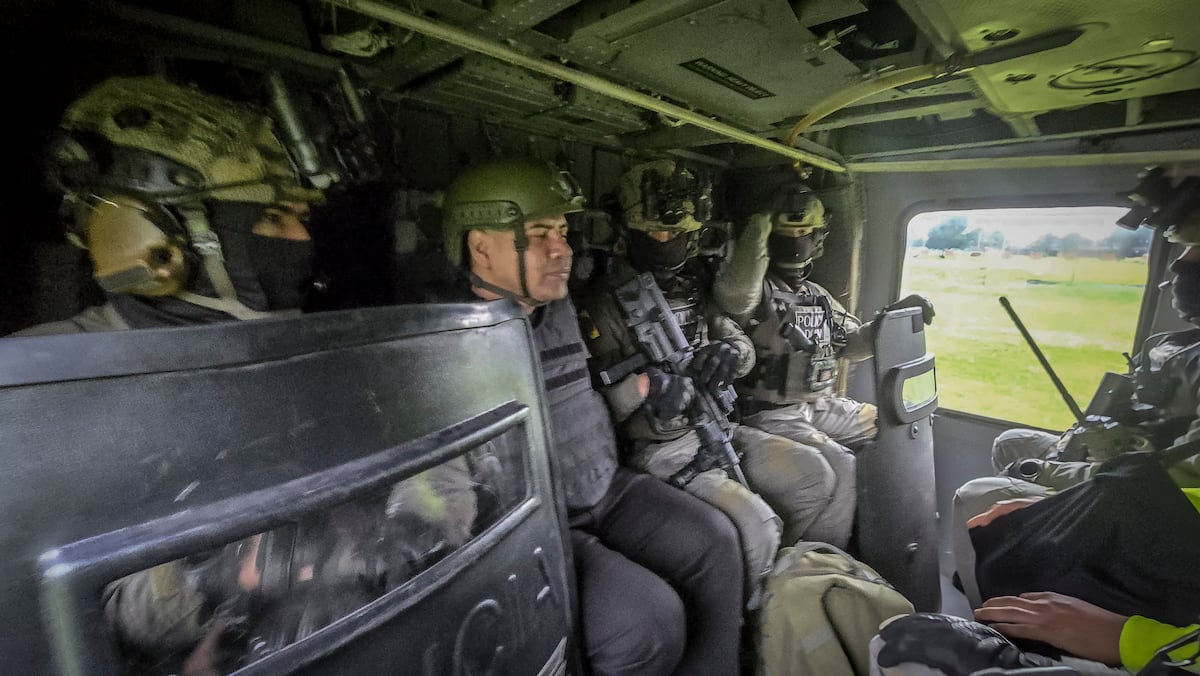We are looking for an independent senior editor
Burned Cars and Curfews: The Impact of 'Pipe Tuluá's Imminent Extradition to the United States
The administration of President Gustavo Petro has authorized the extradition of Andrés Felipe Marín, also known as Pipe Tuluá, to the United States. As the leader of La Inmaculada, a notorious criminal organization, he oversees extortion and drug trafficking in the heart of Valle del Cauca, particularly in Tuluá. Following the announcement of his extradition, several vehicles were set ablaze in the region, prompting the mayor to enforce a curfew and shut down gas stations.
Daniel Gutiérrez, the head of Colombia's National Penitentiary Institute (Inpec), confirmed to W Radio that Marín was airlifted from the maximum-security La Picota prison in Bogotá to a police station in the city center. This move is a precursor to his transfer to the U.S. where he faces narcotics charges. Despite being incarcerated since 2015, Marín has managed to extend his criminal network to regions like Popayán and the Coffee Axis.
In early 2024, Marín attempted to engage with the government for inclusion in the "Total Peace" policy, sending messages to President Petro and Valle del Cauca's governor. In a W Radio interview, he requested opportunities for his associates, expressing dissatisfaction with inadequate support. His overture was unsuccessful, and he now confronts his greatest fear: losing control of La Inmaculada from a U.S. prison cell.
The extradition order comes amid Marín's alleged ties to the criminal group Mago (Death to Oppressive Guards), known for threats and assaults against Inpec officials. In January 2025, Mago released a communiqué threatening retaliation after Marín's inclusion in the Dominó program, intended to centralize high-profile criminals. Leaflets circulated in prisons announced a plot to target guards, starting June 4th.
Marín's notoriety surged following the assassination of La Modelo prison director, Élmer Fernández, on a Bogotá street in May 2024. Authorities suspect figures like Tuluá or Pedro Pluma, a leader with the transnational Tren de Aragua group, orchestrated the killing. During a W Radio interview, Marín admitted to spending nearly half of his 40 years behind bars and acknowledged committing crimes, though he insists on his innocence regarding drug charges. In a 2024 letter to the U.S. ambassador in Colombia, he claimed a conspiracy against him and clarified his criminal record excludes narcotrafficking.
The Ministry of Defense, led by Pedro Sánchez, issued a statement affirming the extradition as a response to a formal U.S. request over serious charges. In light of public disturbances in Tuluá due to Marín's transfer, Sánchez noted on social media that military forces have secured the municipality and implemented security measures. He announced operations to identify, prosecute, and apprehend those responsible, assuring a firm and lawful response to any violence.















LEAVE A COMMENT